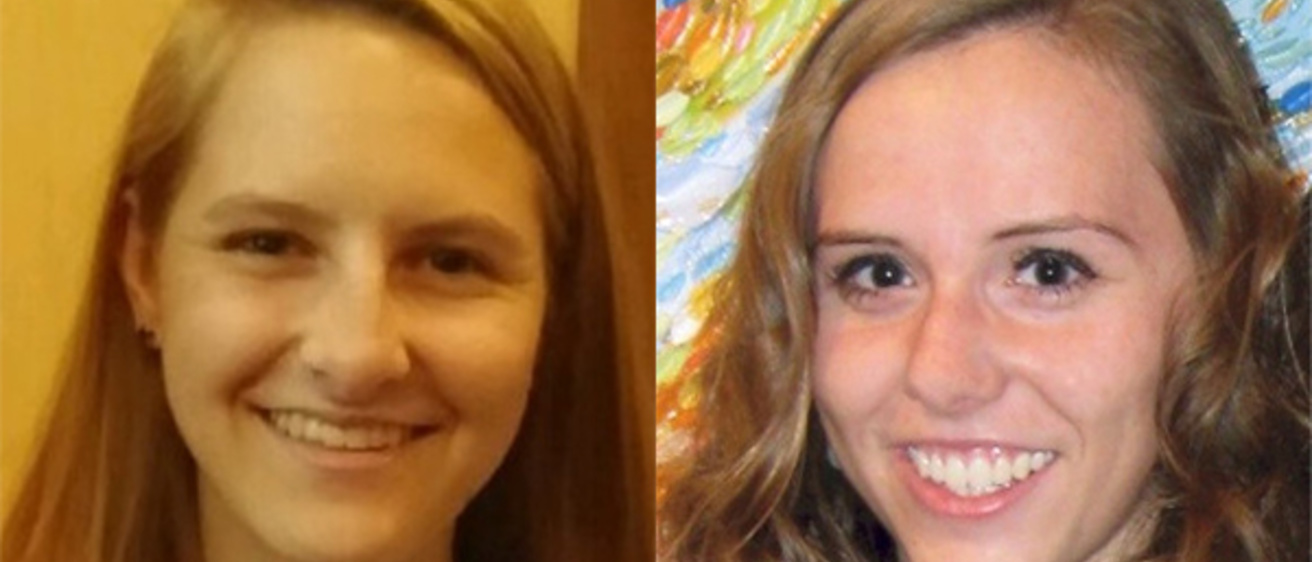Rae Corrigan and Mallory Tollefson, graduate students in biomedical engineering, have been awarded 2018 National Science Foundation Graduate Research Fellowships.
Corrigan is advised by Tom Casavant, Roy J. Carver, Jr. Chair in Bioinformatics and Computational Biology, professor of biomedical engineering, and director of the UI Center for Bioinformatics and Computational Biology. As a junior in 2016, Corrigan was named one of only three 2016 Goldwater Scholars at the University of Iowa.
Tollefson is advised by Michael Schnieders, assistant professor of biomedical engineering and researcher in the Center for Bioinformatics and Computational Biology. As a graduating senior in 2016, Tollefson was chosen through nomination by the senior class to receive the Engineering Student Council Outstanding Senior Award.
The NSF Graduate Research Fellowship Program (GRFP) helps ensure the vitality of the human resource base of science and engineering in the United States and reinforces its diversity. The program recognizes and supports outstanding graduate students in NSF-supported science, technology, engineering, and mathematics disciplines who are pursuing research-based master's and doctoral degrees at accredited United States institutions.
As the oldest graduate fellowship of its kind, the GRFP has a long history of selecting recipients who achieve high levels of success in their future academic and professional careers. The reputation of the GRFP follows recipients and often helps them become life-long leaders that contribute significantly to both scientific innovation and teaching. Past fellows include numerous Nobel Prize winners, U.S. Secretary of Energy, Steven Chu, Google founder, Sergey Brin and Freakonomics co-author, Steven Levitt.
Fellows share in the prestige and opportunities that become available when they are selected. Fellows benefit from a three-year annual stipend of $34,000 along with a $12,000 cost of education allowance for tuition and fees (paid to the institution), opportunities for international research and professional development, and the freedom to conduct their own research at any accredited U.S. institution of graduate education they choose.
